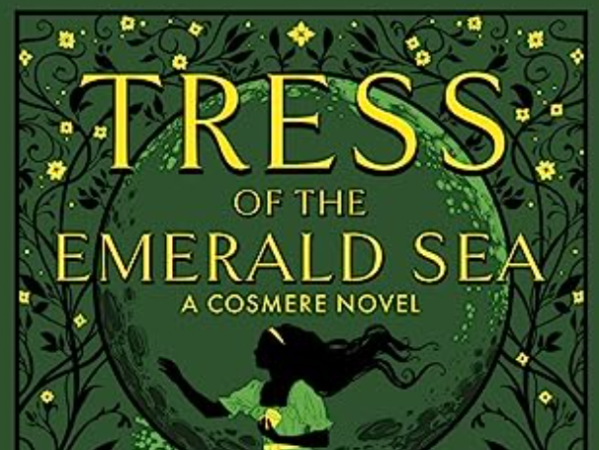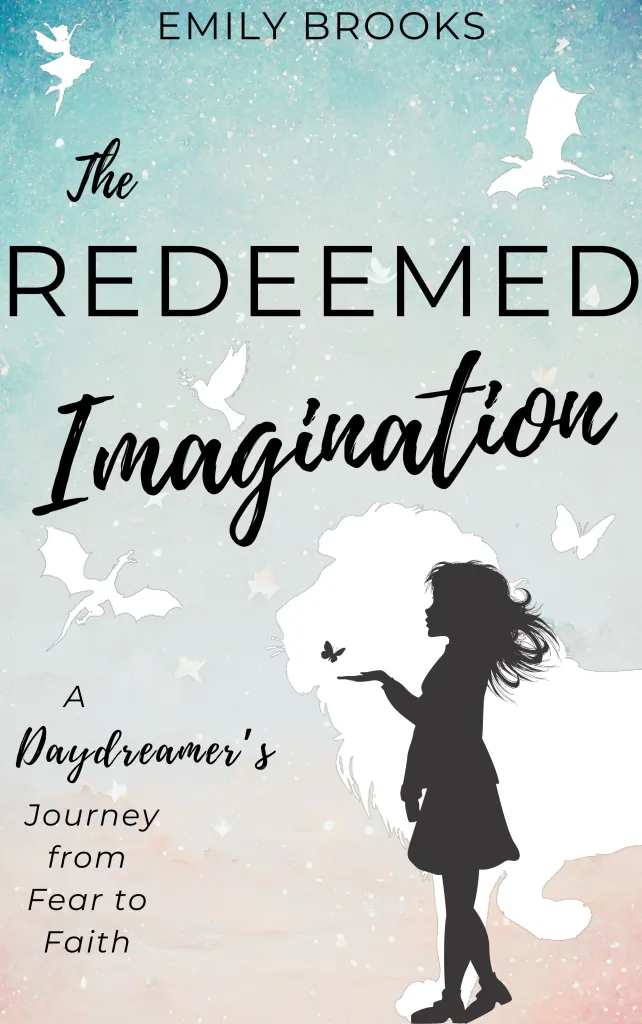In my previous post reviewing SIGHT (2024), I wrote about how true stories may be the way to go for Christian storytellers. But I wanted to follow up to clarify that Christians can write powerful fiction—they just have to do a little more work.
Christians have to consider many things that secular artists don’t, particularly if they are going to include God in their stories, to ensure that they are portraying God consistently and realistically. This often stems from our theological worldview and how we believe God works in the world.
If we believe God is like a genie who will fix everything, then our stories will probably end up reflecting that by abusing the Deus ex machina device where God, rather than the characters, solve all of the problems.
I’ll give an example, but rather than discussing a specific bad example, I’ll share how, if SIGHT (2024) had been fiction, writers may have made a different choice.
In the film, Wang desperately tries to heal a little girl’s sight.
He fails. Kajal remains blind at the end of the film.

If the story had been fiction, then it’s very likely the writers would have wrapped that up more neatly, letting Wang have a revelation that allowed him to heal her.
Instead, the writers told the truth—that Kajal’s unending hope and love for God despite not being healed inspired Wang and taught him that healing isn’t always physical. This, in turn, inspired him to continue working on healing people’s sight, knowing that failure wasn’t the end of the world.
To me, this is far more powerful as well as more relevant to our real lives.
While I love a good miracle story, it falls flat unless I know it really happened. Instead, tell me the story where the miracle didn’t happen and we praised God anyway for the unseen miracle of grace.
Tell me the story of Christians being faithful in their real, messed-up lives. Let them work out their problems rather than the writers providing a Deus ex machina.
This is difficult. Writers of all kinds of fiction already include “God moments,” whether unconsciously or consciously. In fact, Will Storr, author of The Science of Storytelling, suggests that the best stories have this “God moment” where everything feels like it was destined.
As a fan of K-Dramas, I see this a lot, and it’s especially done in romance whenever the audience feels that these characters were destined to be together. It even happens in fantasy with prophesies, or when the character learns just the right thing at the right time that will later help them defeat the antagonist. Storr argues for these kinds of “God moments” because they make readers feel like there is a greater force in the world working for our good, which offers a kind of consolation.
The problem Christian storytellers face is that adding a “God moment” can become literal, where God actually intervenes in a spectacular way. But this makes me, as a reader, skeptical. It makes me ask, “Would God really do that?”
I may not question “fate” in another story because I’ve already suspended my disbelief and accept it as fiction. But for a Christian story, it can feel false because it feels like the storyteller is trying to make me believe God would act in that way.
Admittedly, this is a huge reason why I switched to writing fantasy. It’s just easier to include those seemingly-fatalistic elements without attributing them to God. Yet, because I write stories where there is a Creator, I still have to juggle when to use “God moments.”
There are two major problems with Deus ex machina in Christian fiction.
- As I said above, it may suggest the author is claiming an attribute of God or making a theological statement
- It makes victory too easy for the characters, which takes away their agency and struggle. Even in secular stories, Deus ex machina is critiqued for making the audience feel like the characters only won because of luck.
Because of this, I’ve decided that I’ll never use God in my stories to explain away luck. Actually, I read (or heard?) once that you can only use luck once in a story—if at all—before it feels like the writer is intervening for the characters. So I try to avoid it when possible by making my characters work for their wins.
Even if it’s “fortunate” that my YA characters stumbled upon a tool (sea slugs that cause blindness) that helped them fight a sea monster, for instance, they still had to make the connections and utilize their existing skillsets to use that tool (or slug) effectively.
I’m currently working on a scene where my characters find birds at sea that lead them to an island. My characters believe in God, and so I allow them to thank God for this happy accident. But the island isn’t their salvation, and they only saw the birds because of a storm that nearly kills them. So even this “lucky” moment doesn’t mean God is suddenly going to ease them along to victory.
I and many other writers may overuse The Lord of the Rings as an example, but because it’s so familiar to readers, but I’m going to use it again, especially because Tolkien himself wrote about the importance of the “consolation” of a happy ending.
The Lord of the Rings has a happy ending. Everything comes together beautifully, as if masterminded by Ilúvatar (the Creator). Yet Ilúvatar is not a character in the story. Everything happens because of good people doing good things together. Ilúvatar doesn’t jump in and save Frodo from himself—Sam does. Ilúvatar doesn’t ensure victory for Helms Deep—Gandalf and the Rohirrim do.
One could argue that Ilúvatar is working through people.
Oh hey, that’s what God does.
So we can let our characters be the hands and feat of Jesus, working faithfully through both joy and suffering to make things right.
Do incredible, miraculous things happen in real life? Yep. So I’m not saying they can never happen in fiction. But we have to be extra careful that it never feels like we, the writers, are the miracle-workers fixing the problems for our characters because we don’t know how else to ensure victory.
While I won’t argue that you can’t use miracles at all, I think there is one solution that I personally think works best: Rather than letting the miracle fix the character’s external problems, let it fix their internal problems.
Using the SIGHT (2024) example, the miracle was that Kajal remained joyful and generous despite her blindness. The miracle was internal, not external. Wang still had to work towards healing his next patient.
If you think about it, even stories known for literal God moments, such as A Christmas Carol or It’s a Wonderful Life, don’t end up fixing the characters’ lives. Scrooge changes internally, which moves him to change his surroundings. George Bailey changes internally, but he’s still being pursued by the police. It’s his neighbors, not the angels, who help George overcome his external problems.
The same things is true of The Lion King. Simba encounters his father (who could be a symbolic stand-in for God), who reminds him who he is. This “miracle” changes Simba internally so that he can then act on his external problem.

God moments in themselves, then, can be used well in this way. But Deus ex machina, where God enters the “machine” and fixes an external problem instead of the characters, will nearly always feel unsatisfying.
I believe this is theologically sound as well. The Jews believed the promise of a Messiah meant that God would fix their external problems, but that’s not what happened. Jesus came to change their hearts. While Jesus did many physical miracles, it wasn’t to forever heal their bodies but to eternally heal their hearts.
We know that God doesn’t always provide physical healing or rescue, but that God does always provide eternal salvation for our souls.
In my YA fantasy, my characters realize that they might fail and die. But they also know that death isn’t the end. God might save them now, or he might save them in the afterlife. Either way, they will be saved.
I believe this message is more powerful and consoling because we are often in situations that won’t be fixed. We live in a broken world. While fantasy can get away with revealing the end—the consolation of the “final” happy ending of eternity—realistic fiction usually ends in the present day where things are still broken.
Kajal is still blind. But she has a “sight” that changes Wang for the better.
That’s what Christian storytelling is about. Giving readers “sight” beyond their circumstances and the consolation of salvation—the eternal “happy ending.”
If you liked this, I highly recommend by friend’s Substack, Resurrecting the Real, which “is all about the speculative stories that matter most.” Leo Vaughn shares posts about how Christian storytellers must be intentional about sharing the truth. My favorite recent post, “Interceding for the Reader,” is about how fiction is prayer for strangers.














Leave a comment